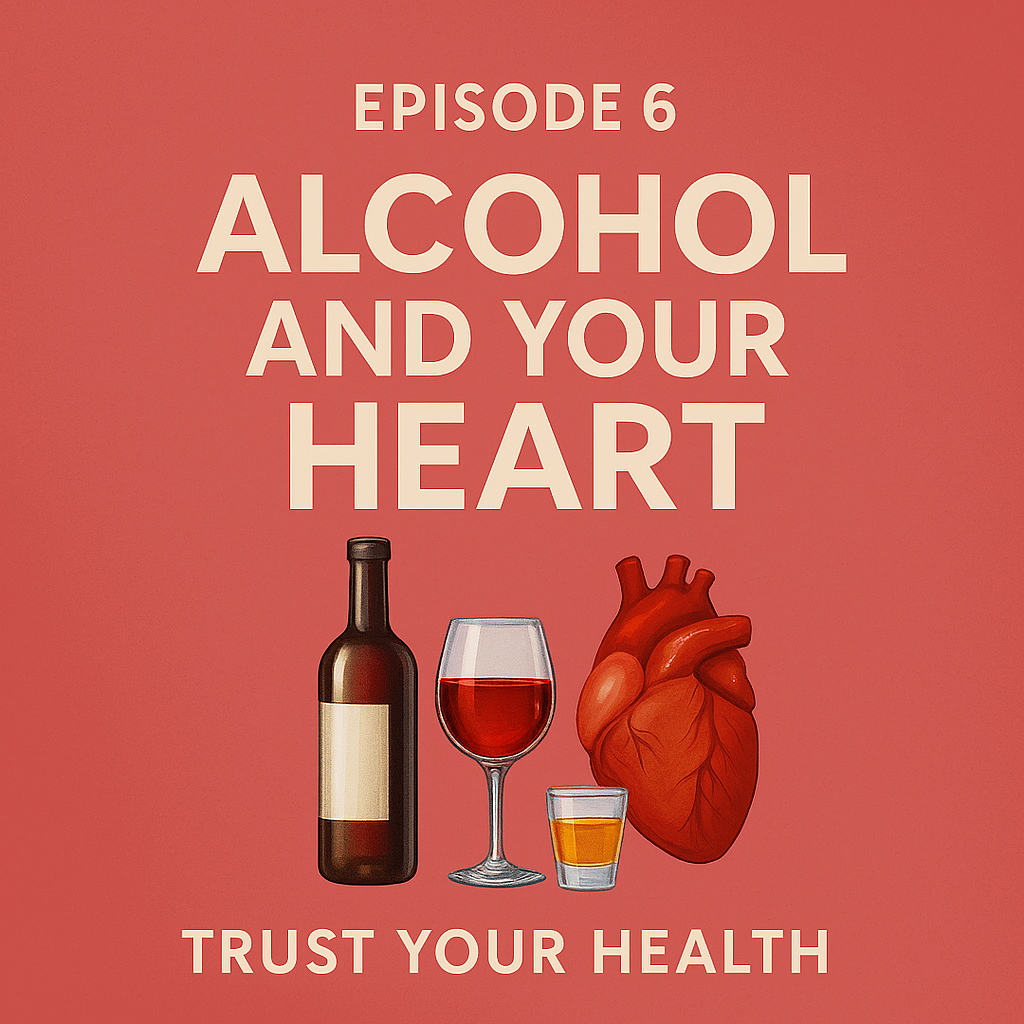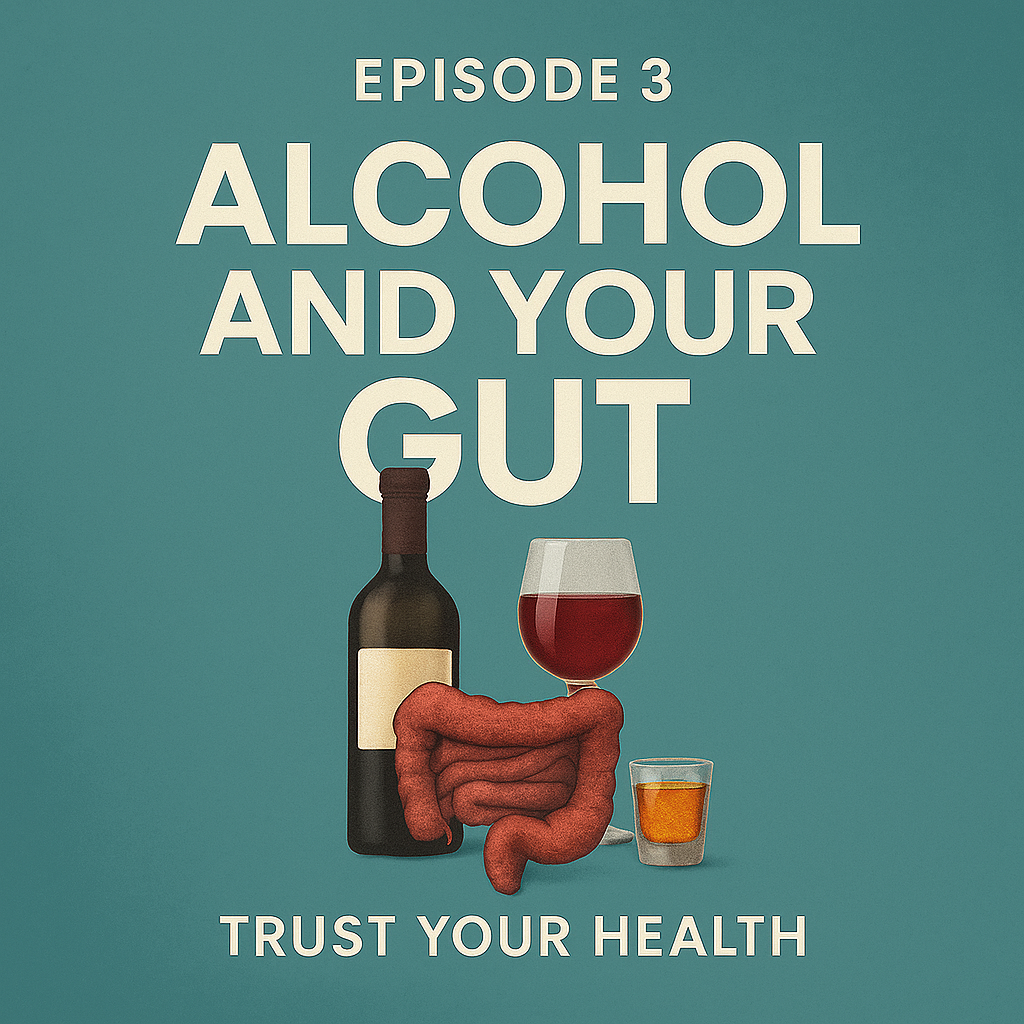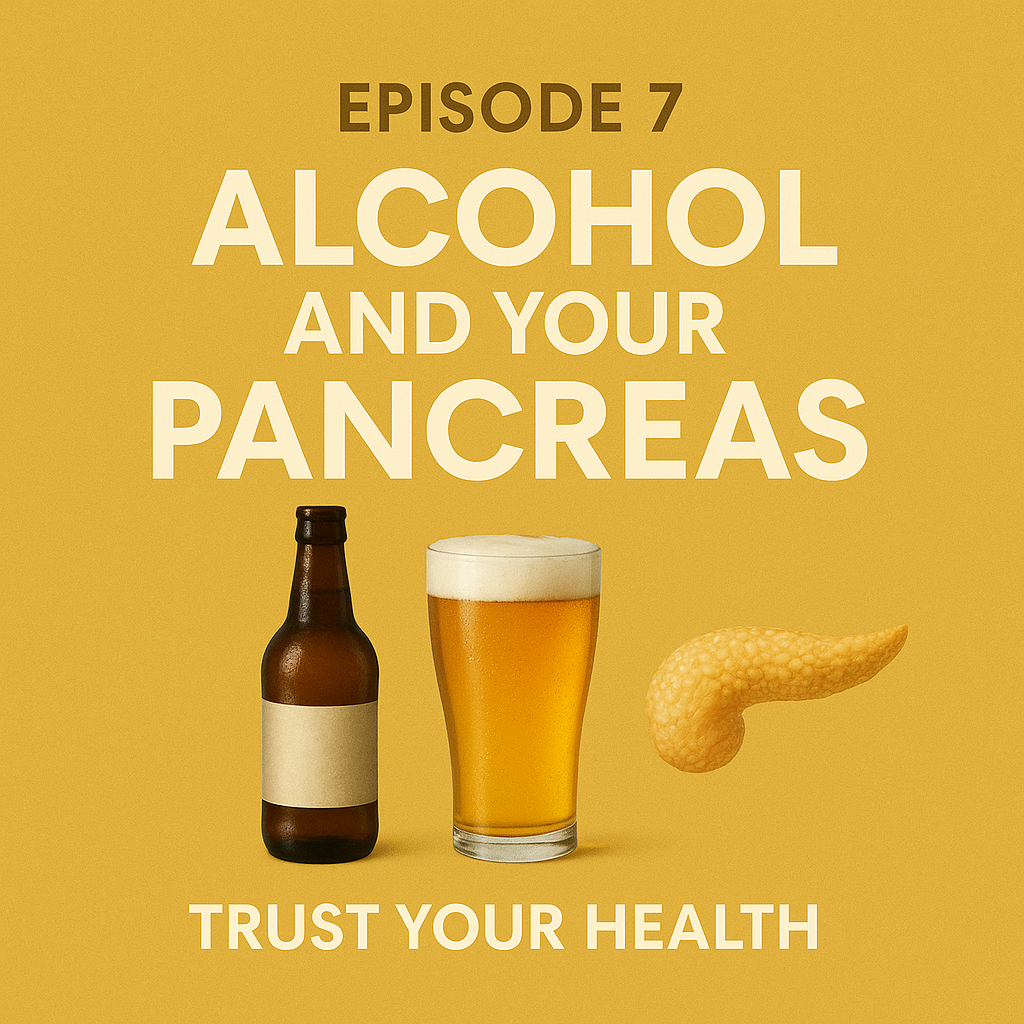Episode Transcript
When you drink coffee or tea, the first thing you notice is the mental boost.
But behind the scenes, it’s your liver that does all the heavy lifting — processing every milligram of caffeine you consume.
In this episode of Trust Your Health, we’re taking a closer look at how your liver metabolizes caffeine, what happens when it’s overloaded, and how your genetics play a bigger role than you might think.
Let’s start with the basics.
When you drink caffeine, it doesn’t stay in your bloodstream forever. Your liver breaks it down into smaller compounds — mainly paraxanthine, theobromine, and theophylline — which are then eliminated from your body.
The speed at which your liver does this is called your caffeine metabolism rate. And here’s where it gets interesting:
Not everyone processes caffeine the same way.
Some people are fast metabolizers. Their liver clears caffeine quickly, so they can drink an afternoon coffee and still sleep fine that night.
Others are slow metabolizers. Their liver processes caffeine much more slowly — meaning it lingers in the body, builds up, and causes side effects like jitters, anxiety, insomnia, and even high blood pressure.
This difference comes down largely to genetics — specifically a gene called CYP1A2, pronounced “sip one A two.” A single variation in this gene can determine whether you tolerate caffeine well or struggle with it.
And here’s another reason your liver matters: the half-life of caffeine — the time it takes your body to clear just half of what you drank — is usually between 3 and 7 hours. That means even if you have coffee in the late afternoon, a significant amount of caffeine can still be in your system by bedtime, making it harder to sleep. And if you’re a slow metabolizer, that half-life can stretch even longer.
No matter what your metabolism type is, there’s still a limit to how much caffeine your liver can handle in a day. At high doses — especially over 400 milligrams per day — your liver’s enzymes can become overwhelmed, and caffeine builds up in your blood. That can lead to palpitations, nausea, and even liver stress in people with preexisting liver disease.
If you already have liver problems — like fatty liver disease or hepatitis — it’s even more important to moderate your caffeine. While some studies show coffee may help protect the liver at low doses, high amounts can still cause harm.
So what can you do?
Pay attention to how you feel after drinking caffeine. If you notice lingering anxiety, trouble sleeping, or feeling wired hours later, you may be a slow metabolizer. Try cutting back, switching to tea, or sticking to morning-only use.
And keep your total daily intake under 400 milligrams — about 3 to 4 cups of brewed coffee — unless your doctor has told you otherwise.
In our next episode, we’ll take a closer look at what happens after your liver does its job — and how caffeine affects your gut and digestion. You’ll see why some people feel bloated, gassy, or even run to the bathroom after a cup of coffee — and what you can do about it.
Thanks for listening to Trust Your Health. Because trusting your health begins by understanding your body.
Be sure to follow the podcast so whenever you need clear, honest advice about your body, we’ll be here to help you make sense of it.


